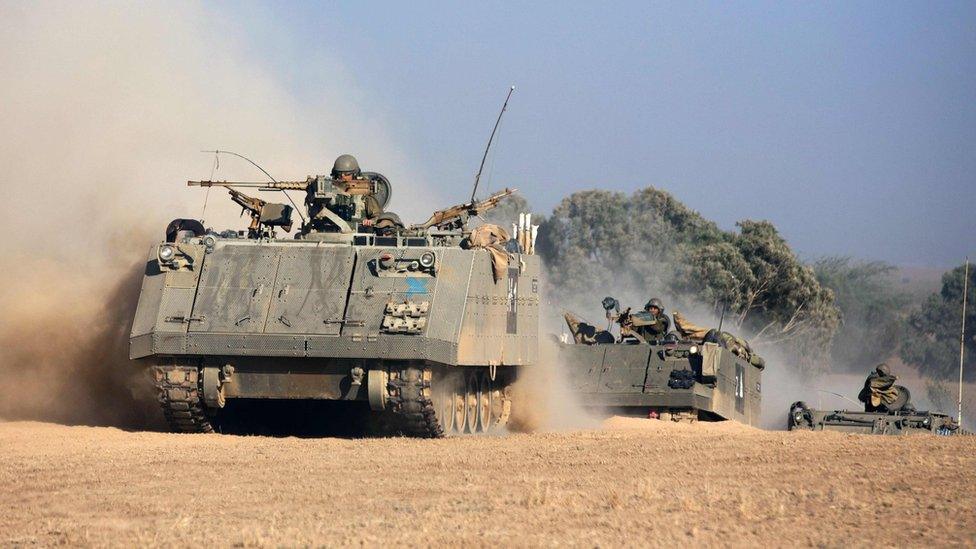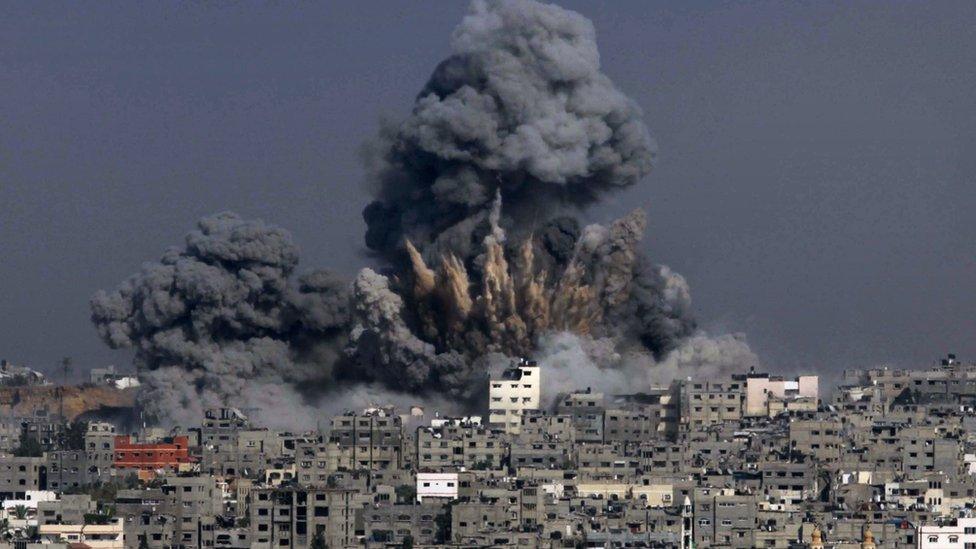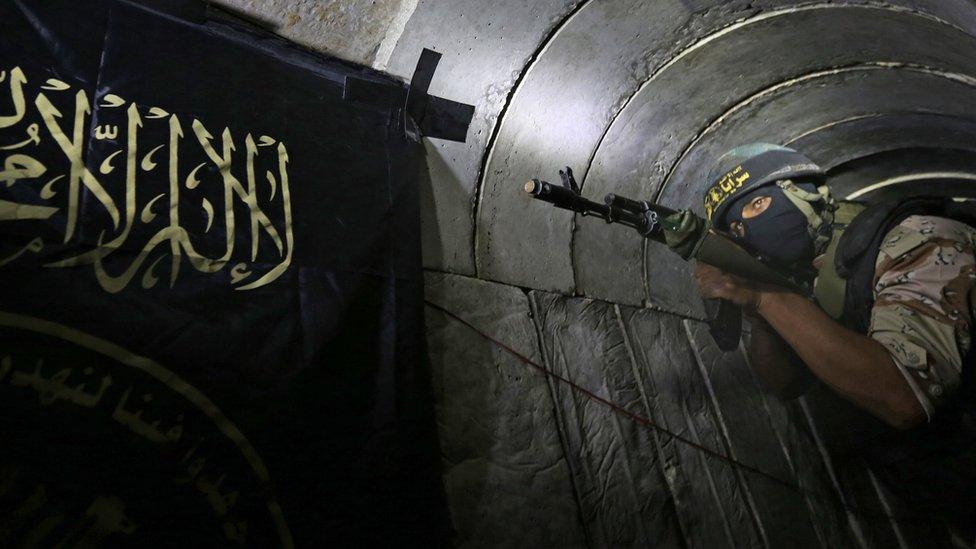Israel's Netanyahu criticised over 2014 Gaza war preparations
- Published

The Israeli military said it was "implementing lessons learned" in the report on the 2014 war
Israeli Prime Minister Benjamin Netanyahu and former defence officials have been criticised by an inquiry into their conduct during the 2014 Gaza war.
A report by Israel's state comptroller accused them of failing to prepare for the threat of cross-border tunnels dug by Palestinian militants led by Hamas.
During fighting, these were used to launch attacks on Israeli soldiers.
Mr Netanyahu insists his security cabinet was aware of the threat and that all scenarios were discussed.
The Israeli military launched Operation Protective Edge in July 2014 with the stated aim of stopping rocket attacks by Hamas and destroying the group's capabilities to conduct operations against Israel.
After an initial phase focused on air strikes, the Israeli military launched a ground offensive that sought to degrade militants' infrastructure in Gaza and destroy their network of tunnels.

At least 18,000 homes in Gaza were destroyed during Israel's 50-day military operation
The operation concluded in August 2014, when both sides agreed to a ceasefire.
The 50-day war left at least 2,251 Palestinians dead, including more than 1,462 civilians, according to the UN, and 11,231 others injured. On the Israeli side, 67 soldiers and six civilians were killed, with scores more wounded.
Tuesday's long-awaited report by state comptroller Joseph Shapira, who reviews Israeli government policy and actions, looked at whether the military was ready to deal with the underground tunnel network Hamas had built.
Militants used the tunnels to infiltrate Israeli territory on four occasions, killing 12 soldiers. In total, Israeli forces destroyed 32 tunnels during the conflict.
The BBC's Orla Guerin was given access by the Israeli military to a tunnel they say was used by Palestinian militants
Mr Shapira found that Mr Netanyahu and then-Defence Minister Moshe Yaalon failed to provide members of the security cabinet with "significant and essential information" necessary to make "well-informed decisions" on the situation in Gaza.
Meanwhile, the Israeli military was found by the state comptroller to have failed to prepare a strategy to destroy the tunnels, forcing it to improvise ways to deal with them during the fighting without the necessary intelligence and preparation.
"The political establishment, the military establishment and the intelligence bodies were aware of the tunnel threat and even defined it as strategic," Mr Shapira wrote. "And yet the actions taken to deal with the threat did not match this definition."

Analysis: Yolande Knell, BBC News, Jerusalem

Benjamin Netanyahu said the tunnel threat was discussed 13 times in cabinet
There has been plenty of political score-settling in the run-up to publication of this much-leaked report. It deals with some key issues for Israel about the 2014 conflict.
Many Israeli soldiers were killed by Palestinian militants using their network of underground tunnels and there were fears they could be used to attack Israeli communities just outside Gaza.
The state comptroller found that, despite intelligence on these, the security cabinet and the Israeli military did not have an advance plan to deal with them.
He also poses a bigger question about whether the 50 days of intense fighting could have been avoided altogether. The report notes that in more than a year, Israel's cabinet had not had a discussion to set its strategy on Gaza. Some analysts say an effective strategy is still needed.

Responding to the report, Mr Netanyahu said "the tunnel threat was presented in detail to the security cabinet in 13 separate sessions and was discussed in all its severity while examining all of the strategic and operational scenarios".
The war was a "success", he added, with Israel dealing the "harshest blow to Hamas since its inception".
However, Israeli opposition leader Yitzhak Herzog said the report proved that Mr Netanyahu was "a failure in peace as well as in security".

Palestinian militants say they have continued to dig tunnels since the conflict
The Israeli military said it was "implementing lessons learned" in the report, but criticised the state comptroller for focusing "on only one threat among others that existed and remain on the agenda", according to the Jerusalem Post.
Hamas has said it has dug new tunnels since the war, while Israel has uncovered at least one further tunnel. It has also reportedly begun the construction of an underground barrier along the border.